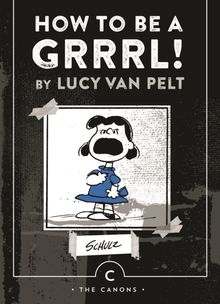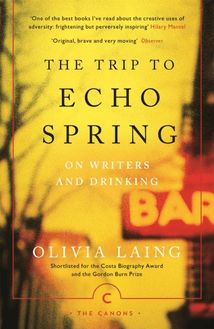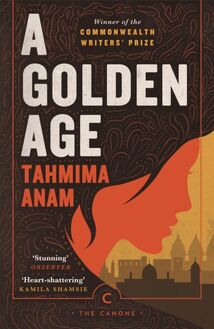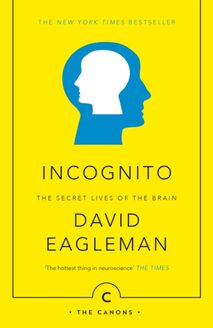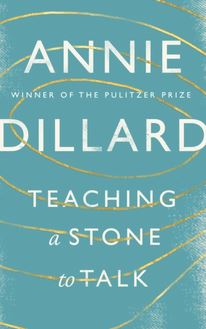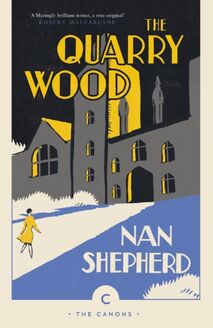Chronicle In Stone , livre ebook
172
pages
English
Ebooks
2005
Vous pourrez modifier la taille du texte de cet ouvrage
Obtenez un accès à la bibliothèque pour le consulter en ligne En savoir plus
Découvre YouScribe et accède à tout notre catalogue !
Découvre YouScribe et accède à tout notre catalogue !
172
pages
English
Ebooks
2005
Vous pourrez modifier la taille du texte de cet ouvrage
Obtenez un accès à la bibliothèque pour le consulter en ligne En savoir plus
Publié par
Date de parution
02 novembre 2005
Nombre de lectures
10
EAN13
9781847678546
Langue
English
Ismail Kadare was born in 1936 in Gjirokaster, in the south of Albania. He studied in Tirana and Moscow, returning to Albania in 1960 after the country broke ties with the Soviet Union. Translations of his novels have since been published in more than forty countries, and in 2005 he became the first winner of the Man Booker International Prize. David Bellos , Director of the Program in Translation at Princeton University, is also the translator of Georges Perec's Life: A User's Manual and a winner of the Goncourt Prize for biography. He has translated seven of Ismail Kadare's novels, and in 2005 was awarded the Man Booker International Prize for his translations of Kadare's work.
Also by Ismail Kadare
The Wedding The General of the Dead Army Broken April The Palace of Dreams The Concert The Ghost Rider The Pyramid The File on H The Three-Arched Bridge Elegy for Kosovo Spring Flowers, Spring Frost The Successor The Blinding Order Agamemnon's Daughter The Siege The Accident The Fall of the Stone City Twilight of the Eastern Gods A Girl in Exile The Traitor's Niche
Copyright
This Canons edition published in Great Britain in 2018 by Canongate Books Ltd, 14 High Street, Edinburgh EH1 1TE
First published in Albanian in 1971 as Kronikë në gur by Naim Frashëri Publishers, Tirana
First published in Great Britain in 1987 by Serpent’s Tail Publishing
Digital Edition first published in 2009 by Canongate Books
This translation has been revised in light of the definitive edition of the text as published in Ismail Kadare, Oeuvres complètes , volume V. Paris: Fayard, 1997
Copyright © Ismail Kadare, 1971 English-language translation copyright © Arshi Pipa, 1987 Edition, afterword and translation of 'Truths, Secrets and Lies' copyright © David Bells, 2007 Introduction copyright © James Wood, 2011
The moral rights of the author, translator and editor have been asserted
British Library Cataloguing-in-Publication Data A catalogue record for this book is available on request from the British Library
ISBN 978 1 78689 449 6 eISBN 978 1 84767 854 6
canongate.co.uk
Contents
Title Page Also by Ismail Kadare Copyright INTRODUCTION A NOTE ON PRONUNCIATION CHRONICLE IN STONE Chapter One Chapter Two FRAGMENT OF A CHRONICLE Chapter Three FRAGMENT OF A CHRONICLE Chapter Four Chapter Five FRAGMENT OF A CHRONICLE Chapter Six FRAGMENT OF A CHRONICLE Chapter Seven FRAGMENT OF A CHRONICLE Chapter Eight FRAGMENT OF A CHRONICLE FRAGMENT OF A CHRONICLE Chapter Nine OLD SOSE’S NEWS (in lieu of a chronicle) Chapter Ten Chapter Eleven Chapter Twelve FRAGMENT OF A CHRONICLE Chapter Thirteen Chapter Fourteen FRAGMENT OF A CHRONICLE Chapter Fifteen FRAGMENT OF A CHRONICLE Chapter Sixteen OLD SOSE’S NEWS (in lieu of a chronicle) Chapter Seventeen WORDS OF UNKNOWN PERSONS Chapter Eighteen DRAFT OF A MEMORIAL PLAQUE TRUTH, SECRETS AND LIES
INTRODUCTION
Like Trieste or Lvov, the ancient city of Gjirokastër, in southern Albania, has passed its history beneath a sign perpetually rewritten, in different hands, but always with the same words: ‘Under New Management’. It enters the historical record in 1336, as a Byzantine possession, but in 1418 was incorporated into the Ottoman Empire. The Greeks occupied it in 1912, yet a year later it became part of the newly independent Albania. During the Second World War, it was taken by the Italians, taken back by the Greeks, and then seized by the Germans: ‘At dusk the city, which through the centuries had appeared on maps as a possession of the Romans, the Normans, the Byzantines, the Turks, the Greeks and the Italians, now watched darkness fall as a part of the German empire. Utterly exhausted, dazed by the battle, it showed no sign of life.’
The novelist Ismail Kadare was born in Gjirokastër, in 1936, and those words are from Chronicle in Stone , the great novel he drew out of his boyhood experiences of the Second World War. It was published in Albanian in 1971, and in English in 1987. (The first translation was by the Albanian intellectual and scholar, Arshi Pipal the current version has been revised by David Bellos, who has added new passages that Kadare first included in the French edition of his Complete Works , published in 1997.) Despite the many horrors it describes, Chronicle in Stone is a joyful, often comic piece of work, in which that concentrated irony for which Kadare would become famous—most notably in his later political parables and allegories of Communism, such as The Concert and The Successor —is already visible. In this early novel the irony has a more generous, truant warmth. A teenaged boy narrates the events, at once wide-eyed and sophisticated: he lives in a large, rambling house, surrounded by relatives, in what appears to be the Albanian Muslim section of a city notable for its Ottoman and Christian influences. War arrives, in the form of Italian bombing, British bombing, and finally the dark rondo whereby Greek and Italian occupiers arrive and depart from the stage like vicars in an English farce: ‘At ten in the morning on Thursday the Italians came back, marching in under freezing rain. They stayed only thirty hours. Six hours later the Greeks were back. The same thing happened all over again in the second week of November.’
But in some ways Kadare is more interested in the kinds of stories that the town might have thrown up at any time in the last thousand years. Townspeople talk of spells, witches, ghosts, and legends. Our young narrator discovers Macbeth and reads it obsessively, seeing parallels between medieval Scotland and modern Gjirokastër. A group of old women discuss a neigh-bour’s son, who has started wearing spectacles—an occurrence that is treated superstitiously, as an ominous disaster. One of the women, Aunt Xhexho, says: ‘How I kept from bursting into tears, I’m sure I don’t know. He walked over to the cabinet, flipped through a few books, then went over to the window, stopped, and took off his glasses . . . I reached out, picked up the glasses, and put them on. What can I tell you, my friends?My head was spinning. These glasses must be cursed. The world whirled like the circles of hell. Everything shook, rolled, and swayed as if possessed by the devil.’ Her interlocutors all agree that a terrible fate has befallen the bespectacled boy’s family. ‘It’s the end of the world,’ intones one of the women, regu-larly. Throughout the novel, these and other neighbours and relatives comment on ordinary events, and this commentary forms a stubborn resistance to the novelty of the occupation. As a mark of how beautifully Kadare blends this atmosphere of the city’s traditional antiquity with the rapidity of wartime development, consider something this same woman, Xhexho, says, when she first hears an air-raid siren: ‘Now we have a mourner who will wail for us all.’
In this novel, Kadare does something very interesting with narrative: he alternates between the first-person ‘I’ of the young boy who tells the story, and a technique that could be called ‘unidentified free indirect style’, whereby he regularly hands off third-person narrative to an implied community, or village chorus, who replace both the boy’s perspective and the omniscient perspective of the novelist. On the one hand, the boy is constantly seeing things with the strange, and estranging, perspective of a young writer-to-be (and this is very much a writer’s bildungsroman, among other genres). The whole town is anthropomorphised by the narrator—the stones seem to speak, the raindrops are alive, the buildings are like people: ‘The fortress was indeed very old. It had given birth to the city, and our houses resembled the citadel the way children look like their mothers.’ A villager’s house is seen thus: ‘It was a somewhat unusual-looking house, with many gable-ends and overhanging eaves. It seemed to me to be dripping with sleep.’ When the storytelling switches from the boy to a diffused third person, the voice of the community itself is heard: ‘We’ve never seen anything like this, said old women who knew the ways of the world and had even been to Turkey.’ In the little provincial comic flick of that phrase, ‘and had even been to Turkey’, we can read, if we want to, the limited viewpoint of the boyish narrator. But I think we are meant to hear, instead, the limits of the town itself, as if a group of mothers were speaking amongst themselves, and agreeing that the wisest women in Gjirokastër ‘know everything—after all some of them have even been to Turkey!’ This is how Kadare can reproduce a good deal of speech in this book without needing to attribute it to any particular source; it is merely interested commentary from the town:
‘What about our anti-aircraft gun? Why doesn’t it come on?’ ‘You’re right, we do have an anti-aircraft gun. Why don’t we ever hear it?’
The gap between the provincialism of ‘and had even been to Turkey’, and the cosmopolitanism of the author who is able to see the provincialism of the phrase is ironic, and it is the fond, rueful ironic gap that opens up when an author raised in a small, relatively peripheral place leaves it and writes from a larger, relatively more central place: we find this gap, and this kind of ironic–comic ‘community’ narration, in the Sicilian fiction of Giovanni Verga, in Cesare Pavese’s The Moon and the Bonfire (narrated by a man who has returned to the rural village of his boyhood), in V.S. Naipaul’s A House for Mr. Biswas , and in some of José Saramago’s fiction. Like Naipaul’s novel, Chronicle in Stone recalls a community that can be remembered by the author, but which cannot, practically speaking, be returned to by the author. For the author has grown up and grown away, and the old city will rise up to remind him, in famous, more ‘sophisticated’ places like Paris or Moscow, of that old childhood: ‘Often,’ writes Kadare in a touching postscript, ‘striding along wide lighted boulevards in foreign cities, I somehow stumble in places where no one eve
